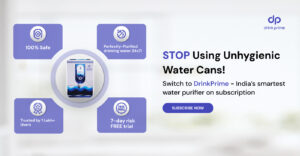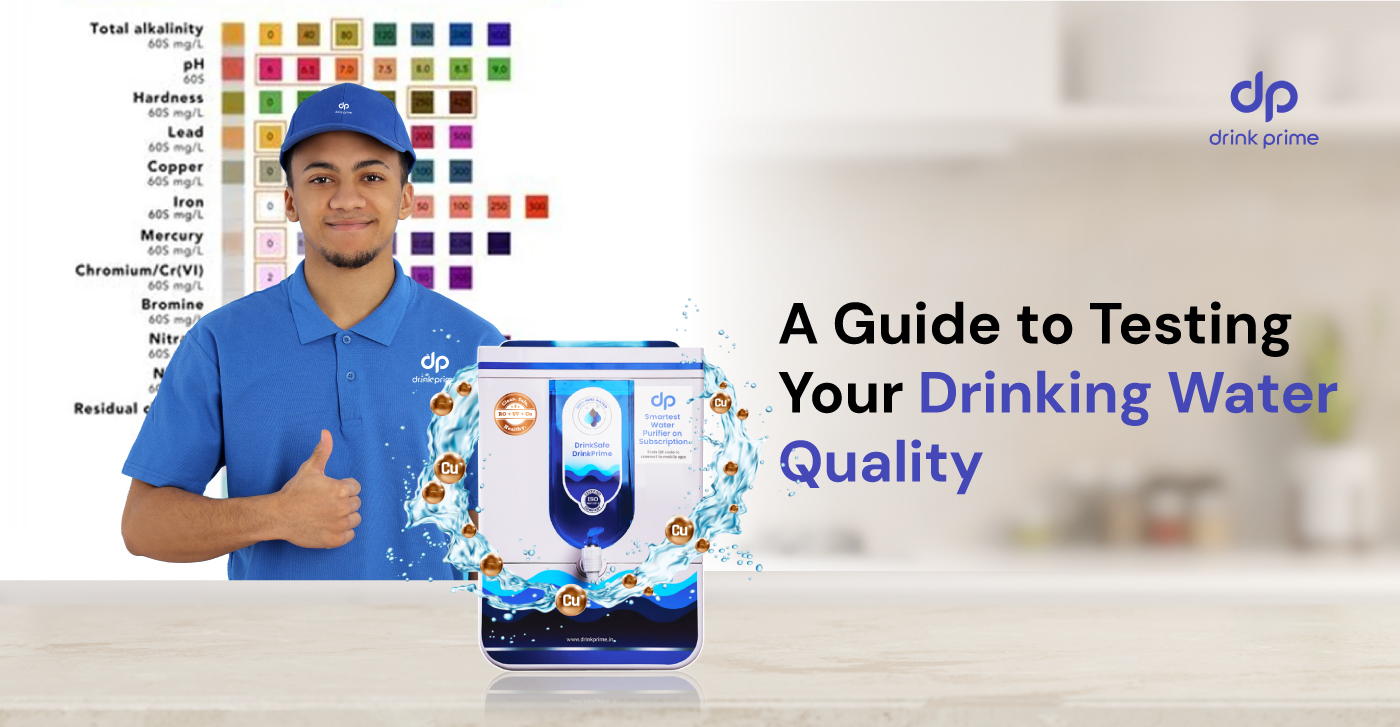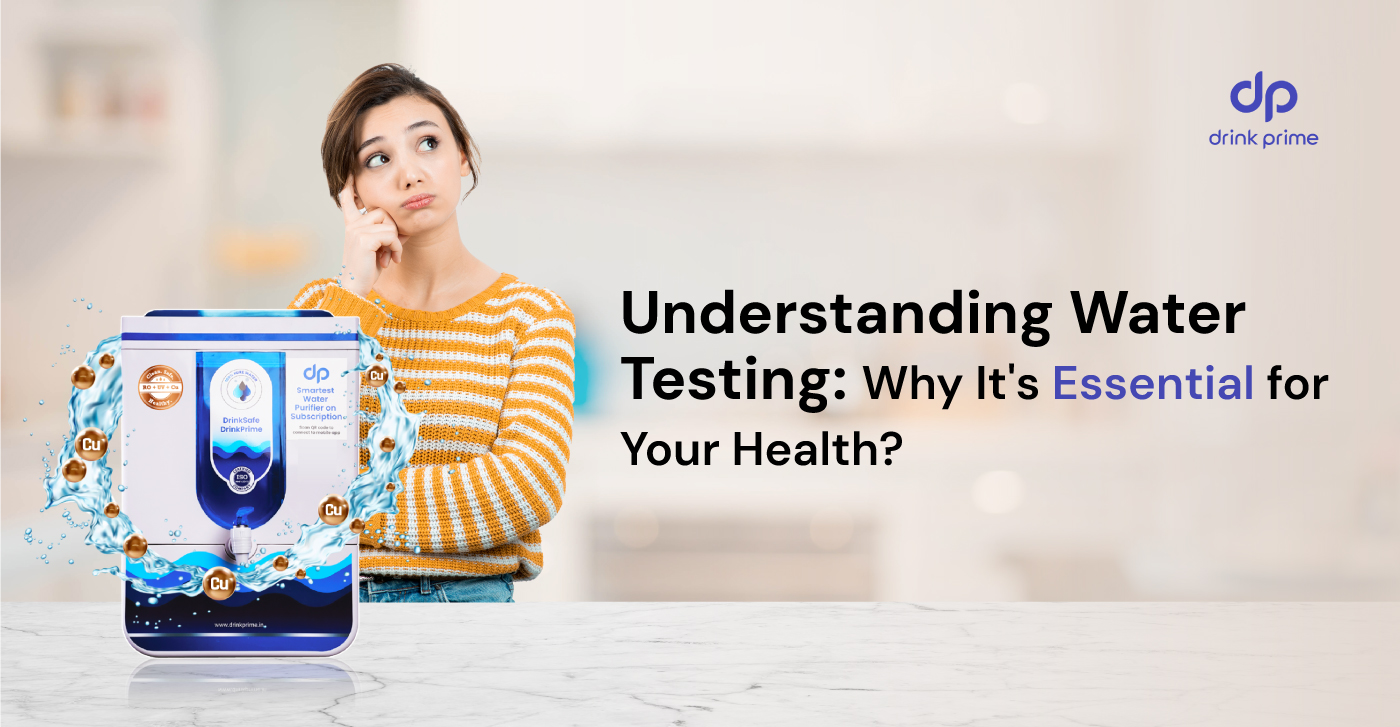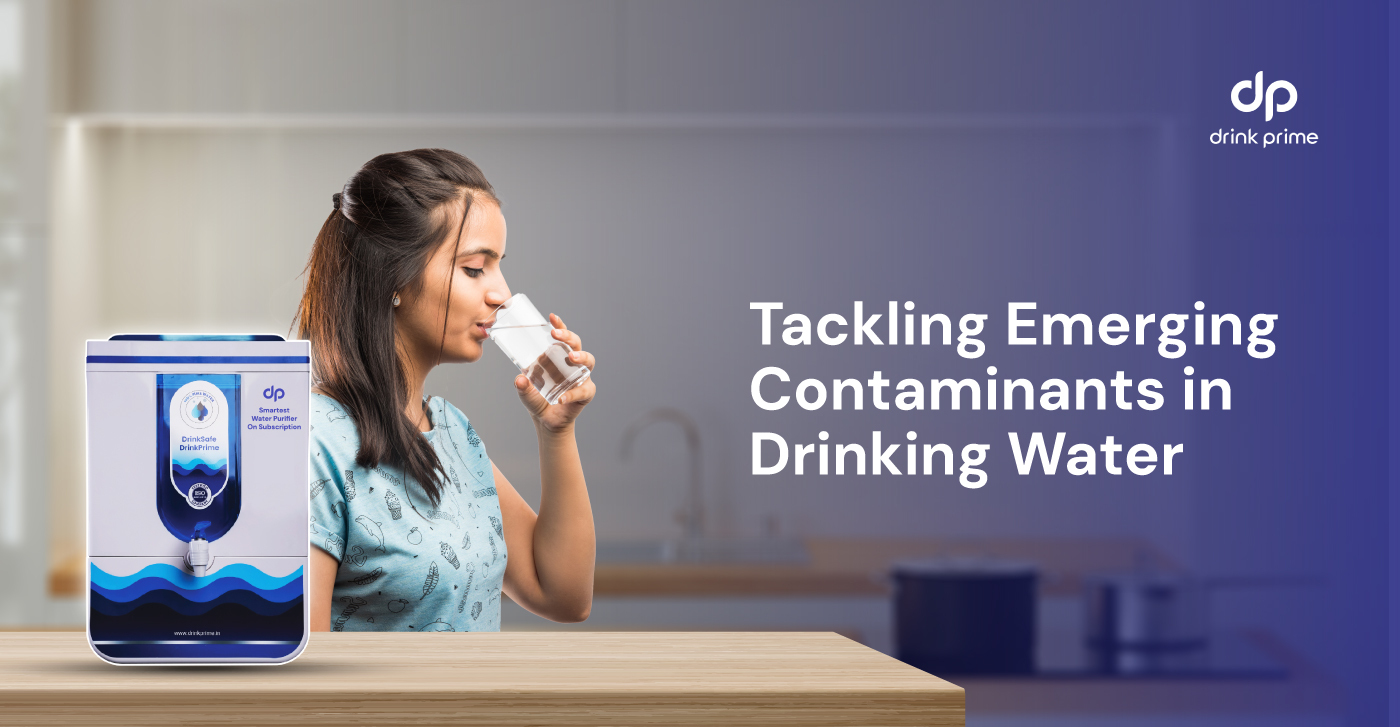Though an adequate quantity of water is imperative for your health, supplying your body with essential minerals is not water’s primary function. Nourishment for the body is mainly done by the food you consume, just like water prevents your body from getting dehydrated. The water that you drink mainly dissolves the minerals that you get from food, so that it can easily reach other parts of the body. In current times there are different types of water available for consumption, like RO purified water, bottled mineral water, spring water, distilled water etc.
Here, we explore the question, is distilled water safe to drink and what are its benefits and possible side effects?
What is distilled water?
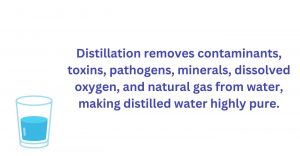
Water that has been purified by a water distiller is known as distilled water. The water to be purified is converted into steam by heating it and it evaporates into steam leaving behind contaminants, bacteria and minerals as these cannot evaporate. The steam is then condensed back into water in a separate collection container. The process of distillation emulates a natural process of recycling water known as hydrologic cycle. When distillation is done at home, there are twin chambers where evaporation and condensation take place respectively.
Related Reading: Distilled Water vs Purified Water: Pro ,Cons and Comparison
Is drinking distilled water safe?
According to the WHO guidelines made in 1980, it is safe to drink distilled water. During distillation the minerals are stripped off the water, along with the impurities. So, if you are not getting enough nutrients like calcium and magnesium and other essential minerals from your diet, it is advisable to drink regular purified drinking water which contains trace essential minerals.
Many people are put off by the almost flat, ‘laboratory taste’ of distilled water. This is because along with contaminants and minerals the process of distillation also removes dissolved oxygen and natural gasses which are responsible for giving water its natural taste. Distilled water is also reported to have less thirst-quenching characteristics. These factors may make distilled water less popular as the choice of drinking water. So, can we drink distilled water? Yes, But it’s not necessarily a healthier drink than other clean, purified water.
What are the risks of drinking distilled water?
Let us look at some of the risks:
- Distillation removes essential minerals, dissolved oxygen, and natural gas along with pollutants and contaminants.
- Distilled water lacks essential minerals like calcium and magnesium found in other purified water.
- The absence of dissolved oxygen gives distilled water a flat taste that is not appealing to most people.
- Distilled water has the potential to leach minerals from your body, including your teeth, due to its mineral-deficient nature.
- The lack of minerals in distilled water can lead to a dilution of electrolytes in the body and disrupt the proper functioning of vital organs.
- Consuming distilled water may result in symptoms such as exhaustion, weakness, headache, and, in rare cases, muscular cramps and a diminished heart rate.
- Storing distilled water can be problematic as it has a tendency to absorb trace quantities of the container material, making it unsafe if stored in plastic containers.
What are the potential benefits of drinking distilled water?
Here are the benefits of drinking distilled water:
- Distilled water is highly pure as it removes contaminants, pollutants, and bacteria.
- Suitable for individuals with compromised immune systems as it reduces the risk of infections.
- Can be used for surgical purposes due to its purity.
- Has been found beneficial in certain types of cancers.
- Believed to help cleanse the body of unwanted chemicals.
- Recommended when the available water quality is poor and contaminated with chemicals and pesticides.
What are the uses of distilled water?
Some of its uses are:
- Distillation removes contaminants, toxins, pathogens, minerals, dissolved oxygen, and natural gas from water, making distilled water highly pure.
- Widely used in industries and applications requiring pathogen-free and contaminant-free water.
- Commonly used in car batteries, UPS, aquariums, steam irons, and other household appliances.
- Used in medical implements like CPAP machines for sleep apnea treatment.
- Preferred in laboratories and hospitals to ensure sterile and contaminant-free water.
- Essential in food processing plants to maintain consistent taste in products.
- Utilized in the automobile industry for batteries and cooling systems to prevent mineral deposits and corrosion.
Get 7 Days Risk Free Trial
Conclusion
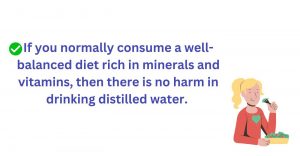
Distilled water is relatively safe to drink and while it will not lead to significant health benefits, it does not dramatically hurt you either. If you find the flat, laboratory water taste palatable and normally consume a well-balanced diet rich in minerals and vitamins, then there is no harm in drinking distilled water. You can also use distilled water around your house from your inverter and steam iron to watering your plants and your cars’ cooling systems.

